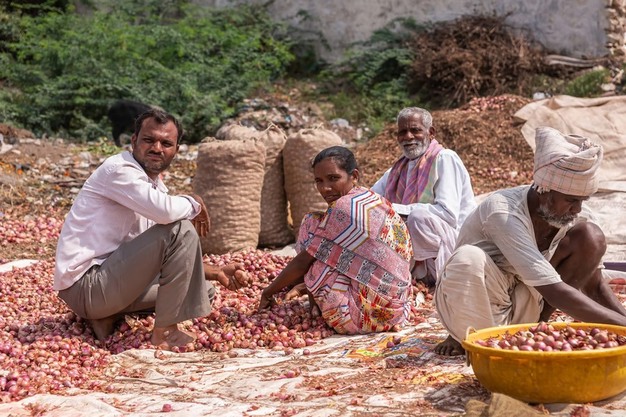Onion farmers in Maharashtra are facing a downturn in market prices, with the procurement price at mandis decreasing by 65 per cent in the last two weeks. This decline has been consistent since the beginning of December, notably at Lasalgaon mandi, which is recognized as Asia's largest onion market. The price drop from Rs 3,500 per quintal ($42.35) to Rs 1,200 per quintal ($14.52), and in some cases even Rs 800 per quintal ($9.68), has placed farmers in a position where the cost of cultivation, averaging Rs 2,200-2,500 per quintal ($26.62-$30.24), is not being met.

The current situation is attributed to the influx of the new onion crop, which has increased supply, and the actions of the National Agricultural Cooperative Marketing Federation of India Ltd, which has been selling its stock at subsidized rates. In response to these challenges, farmers are advocating for the removal of the 20 per cent export duty on onions. This demand is fueled by the concern that countries traditionally importing onions from India have turned to alternative sources, such as Pakistan, due to the export duty implemented by the Indian government.
Bharat Dighole, president of the Maharashtra State Onion Grower's Association, emphasized the impact of the export duty on farmers' ability to recover cultivation costs, let alone make a profit. The association plans to present their demands to Union Commerce Minister Piyush Goyal during his visit to Nashik for a government program under the Pradhan Mantri Samastiva Yojana.
The imposition of export duties and the indefinite extension of an initial export ban have been measures taken by the government to prioritize domestic supply and consumer prices. However, with the arrival of new crops from Madhya Pradesh, Gujarat, and Maharashtra, farmers argue that these restrictions are no longer necessary. Deputy Chief Minister Ajit Pawar has also called for the central government to reconsider the export duty. The fluctuating policies over the past year have predominantly favored consumers, leaving farmers in a precarious position.
Source: DownToEarth










